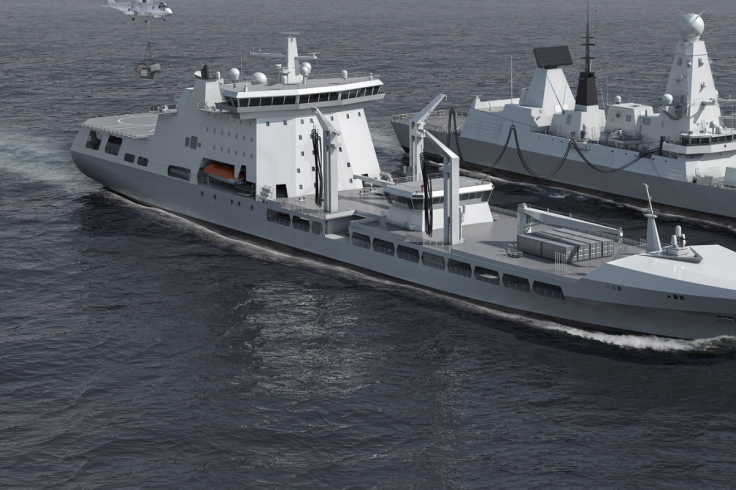Missing RFA Sailor Case Raises Tough Question: Is Britain's Naval Workforce Stretched Too Thin?
Search ends as concerns grow over strain

An extensive search off Ireland's northwest coast for a missing Royal Fleet Auxiliary (RFA) sailor has ended without success, prompting questions about the pressures facing Britain's naval workforce. The crew member from RFA Tidesurge was last seen late on Friday evening, sparking a multi-agency operation involving the Irish Coast Guard, Royal Navy, Royal Air Force, and RNLI lifeboats.
The Search Effort
The Irish Coast Guard confirmed that a distress call was received on Saturday morning from a UK naval support vessel. Rescue teams were immediately deployed, with lifeboats launched from Ballyglass, Arranmore Island and Lough Swilly, alongside aircraft and a helicopter. The operation was coordinated from Malin in County Donegal and extended across the waters between Tory Island and Eagle Island.
Despite the scale of the response, the Ministry of Defence announced on Sunday that the sailor had not been found. Defence Secretary John Healey expressed his condolences, stating: 'After an extensive search, it is with deep sadness that we confirm the missing crew member of RFA Tidesurge has not been found. My thoughts are with their family during this tragic time, as well as their fellow crew members.'
The Role of the RFA
The Royal Fleet Auxiliary is a civilian-manned service that provides vital logistical support to the Royal Navy. Its ships deliver fuel, supplies and operational assistance, ensuring the fleet can sustain missions worldwide. RFA sailors are employed as civil servants rather than enlisted personnel, but their work is integral to Britain's defence capability.
The disappearance of a crew member highlights the risks faced by those serving at sea, even outside combat zones. It also raises questions about whether the demands placed on the RFA workforce—often operating under challenging conditions—are stretching resources too thin.
Workforce Pressures
Britain's naval forces have faced increasing strain in recent years, with commitments ranging from home waters to international deployments. The RFA, in particular, has been tasked with supporting operations globally, often with limited manpower.
The incident off the coasts of Ireland underscores the human cost of these pressures. While the circumstances of the sailor's disappearance remain under investigation, the tragedy has reignited debate about whether Britain's naval workforce is adequately supported and resourced.
— Royal Navy (@RoyalNavy) November 16, 2025
Investigation and Privacy
The Ministry of Defence confirmed that an investigation is underway. No further details about the missing sailor have been released, and the family has requested privacy. Officials emphasised that no other individuals were harmed or reported missing during the incident.
Mental Health and Morale
Beyond logistical challenges, experts note that the psychological strain on naval personnel is considerable. Extended deployments, isolation at sea, and the constant demands of operational readiness can erode morale and well-being. Civilian-manned crews such as those in the RFA often face additional pressures, balancing their unique status with the expectations of military service. Analysts argue that greater investment in counselling, rest periods, and support networks is essential to ensure sailors are not only physically safe but also mentally resilient. The disappearance of a crew member serves as a stark reminder that safeguarding well-being is as critical as maintaining ships and supplies.
© Copyright IBTimes 2025. All rights reserved.





















